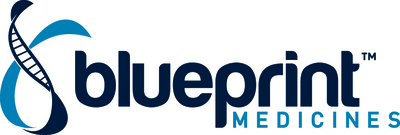CANCER Publishes Study Demonstrating Substantial Disease Burden for Patients with Systemic Mastocytosis
-- Patients across the spectrum of disease reported substantial symptom burden, as well as scores of physical functioning and mental health that are worse than historical data for patients with colorectal or lung cancer --
SM is a rare hematologic disorder driven by the KIT D816V mutation in nearly all cases. The vast majority (90-95 percent) of those affected have non-advanced (indolent or smoldering) SM, with debilitating symptoms that lead to a profound negative impact on quality of life. A minority of patients have advanced SM, which encompasses a group of high-risk SM subtypes including aggressive SM, SM with an associated hematological neoplasm, and mast cell leukemia. In addition to mast cell activation symptoms, advanced SM is associated with organ damage due to mast cell infiltration and poor survival.
"These new observational data published in CANCER meaningfully advance our understanding of the significant disease burden of systemic mastocytosis, with many patients experiencing persistent disability, poor quality of life and frequent rates of anaphylaxis," said
"For patients with systemic mastocytosis, the TouchStone results bring to life the real-world impact of the debilitating disease symptoms characteristic of systemic mastocytosis. These include poor physical and mental health, reduced ability to work and perform activities of daily living, high healthcare utilization and extensive symptom-directed polypharmacy," said
The TouchStone SM Patient results were identified through a survey that enrolled 56 patients with self-reported SM recruited from
- Nearly two-thirds of patients reported avoiding leaving their home due to SM symptoms and 66 percent experienced pain from symptoms that interfered with their ability to work, with 30 percent filing for medical disability due to their disease.
- More than 50 percent of patients reported taking three or more over-the-counter medications plus three or more prescription medications to manage the symptoms of their disease.
- 30 percent of patients reported seeking emergency care for anaphylaxis over the course of a year. Annual visits to specialists were particularly common. Almost half (45%) of patients surveyed reported three or more annual visits to Allergy/Immunology specialists, while close to one-third of patients (31%) reported three or more visits to Hematology/Oncology.
The TouchStone SM HCP results were identified through an online 51-question survey administered to 111 U.S. physicians specializing in allergy/immunology or hematology/oncology who care for patients with SM to characterize their perception of disease burden, patient needs and satisfaction with current management strategies in SM. Highlights from the HCP results include:
- Surveyed HCPs reported that nearly 60 percent of their patients diagnosed with non-advanced SM experienced moderate to severe symptoms and that they aggressively treated an average of 52 percent of their non-advanced SM patients with symptom-directed prescription medications.
- More than 50 percent of HCPs noted that their patients with non-advanced SM experience limitations across all aspects of their daily life, including school, work, sports, physical activity, sleep, leisure time, relationships and ability to care for their children.
- 41 percent of HCPs rated improving quality of life as the most important treatment goal for patients with non-advanced SM, with improvement of symptoms the second most important treatment goal in this population. For patients with advanced SM, the primary treatment goal for more than 50 percent of HCPs surveyed was to reduce the risk of organ damage and improve progression-free survival or overall survival.
The papers, titled "Patient-reported Outcomes Among Patients with Systemic Mastocytosis in Routine Clinical Practice: Results of the
About Systemic Mastocytosis
Systemic mastocytosis (SM) is a rare disease primarily driven by the KIT D816V mutation. Uncontrolled proliferation and activation of mast cells result in chronic, severe and often unpredictable symptoms for patients across the spectrum of SM. The vast majority of those affected have non-advanced (indolent or smoldering) SM, with debilitating symptoms that lead to a profound, negative impact on quality of life. A minority of patients have advanced SM, which encompasses a group of high-risk SM subtypes including aggressive SM (ASM), SM with an associated hematological neoplasm (SM-AHN) and mast cell leukemia (MCL). In addition to mast cell activation symptoms, advanced SM is associated with organ damage due to mast cell infiltration and poor survival. Across advanced SM subtypes, the median overall survival is approximately 3.5 years in ASM, approximately two years in SM-AHN and less than six months in MCL.
Debilitating symptoms, including anaphylaxis, maculopapular rash, pruritis, diarrhea, brain fog, fatigue and bone pain, often persist across all forms of SM despite treatment with a number of symptom-directed therapies. Patients often live in fear of severe, unexpected symptoms, have limited ability to work or perform daily activities, and isolate themselves to protect against unpredictable triggers. Historically, there had been no approved therapies for the treatment of SM that selectively inhibit D816V mutant KIT.
About Blueprint Medicines
Cautionary Note Regarding Forward-Looking Statements
This press release contains forward-looking statements within the meaning of the Private Securities Litigation Reform Act of 1995, as amended, including, without limitation, statements regarding plans, strategies, timelines and expectations for
Trademarks
![]() View original content to download multimedia:https://www.prnewswire.com/news-releases/cancer-publishes-study-demonstrating-substantial-disease-burden-for-patients-with-systemic-mastocytosis-301611223.html
View original content to download multimedia:https://www.prnewswire.com/news-releases/cancer-publishes-study-demonstrating-substantial-disease-burden-for-patients-with-systemic-mastocytosis-301611223.html
SOURCE
Investor Relations, Jim Baker, +1 (617) 844-8236, ir@blueprintmedicines.com; Media Relations, Andrew Law, +1 (617) 844-8205, media@blueprintmedicines.com

